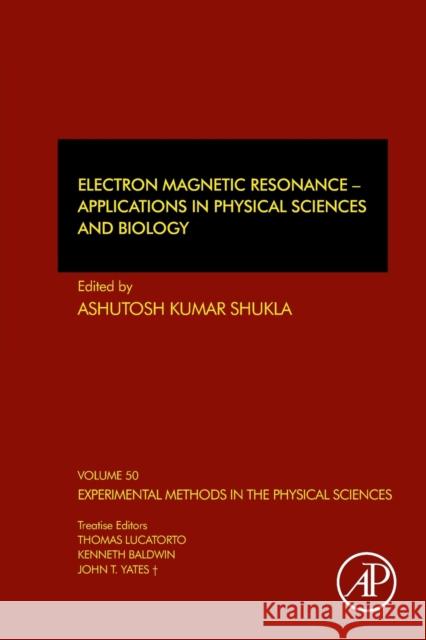Electron Magnetic Resonance: Applications in Physical Sciences and Biology Volume 50 » książka
topmenu
Electron Magnetic Resonance: Applications in Physical Sciences and Biology Volume 50
ISBN-13: 9780128140246 / Angielski / Miękka / 2019 / 242 str.
Kategorie:
Kategorie BISAC:
Wydawca:
Academic Press
Seria wydawnicza:
Język:
Angielski
ISBN-13:
9780128140246
Rok wydania:
2019
Numer serii:
000007928
Ilość stron:
242
Waga:
0.33 kg
Wymiary:
22.86 x 15.24 x 1.3
Oprawa:
Miękka
Wolumenów:
01
Dodatkowe informacje:
Bibliografia











